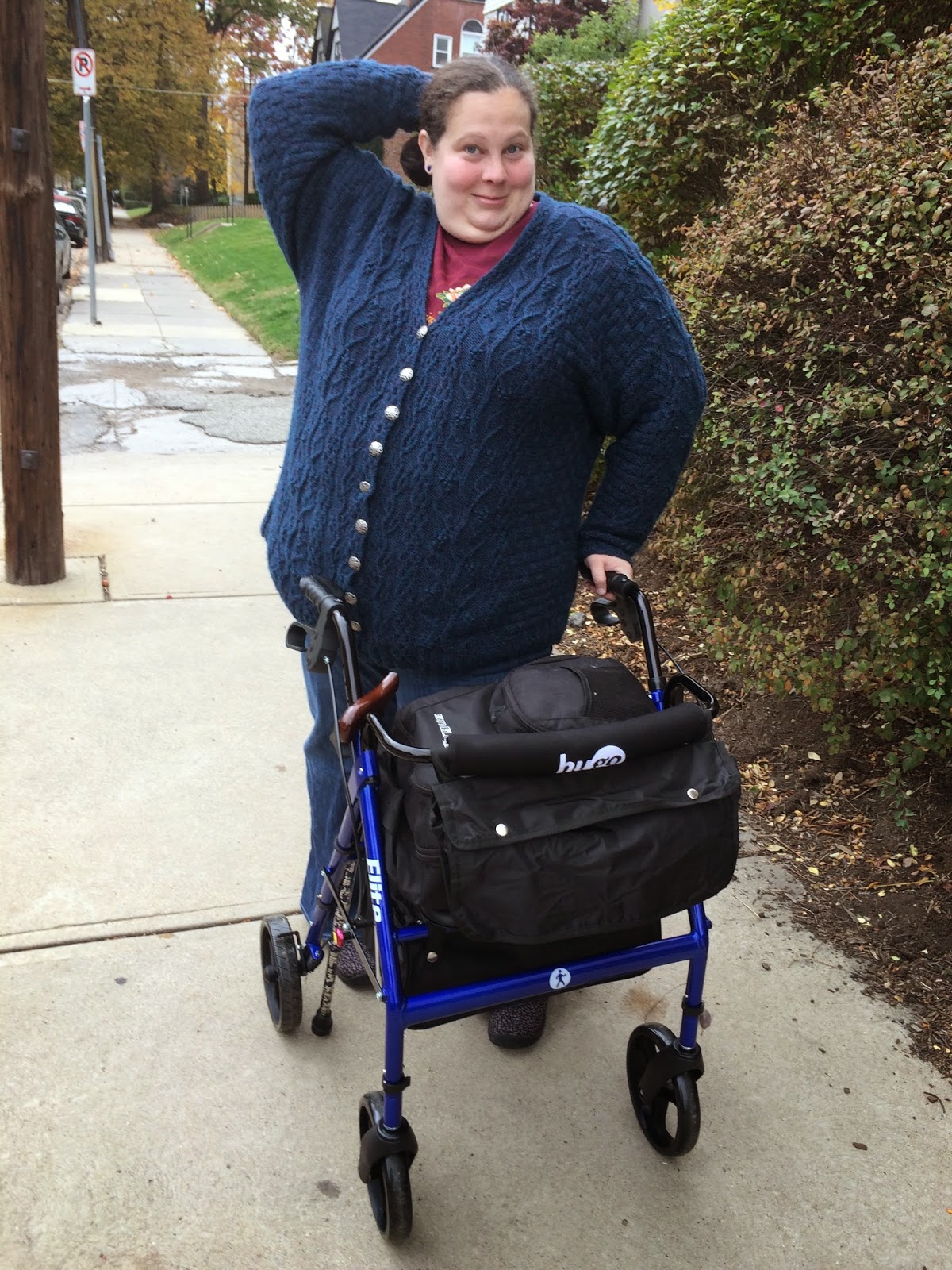Hi! My name is Alisa, and I am starting a new blog! Woohoo!
Yay! Fanfare and spectacle and all that shit. I’m a 30-something heavily
tattooed vegetarian
Jubu white chick who likes to write, knit, play with my
cat, and bemoan my inability to win the lottery so I can obsessively follow a
Dave Matthews Band summer tour around the country. I live in the
fair cloudy and frequently inclement city of Pittsburgh and
I bleed
Black and Gold. I am an alumna of Carnegie Mellon University and, as
such, am a gigantic nerd. Seriously, you have no idea. My
other blog that I am
working on is tracing my family history through the Holocaust and,
hopefully, from before then.
When I was 19 years old I was diagnosed
multiple sclerosis,
a so-far incurable neurodegenerative condition that causes a wide range of
symptoms that are as different from person to person as their Pandora
playlists. For me I deal with a lot of pain and weakness/numbness, gait
problems, and something which is generally referred to in the MS community as
“
cog fog.” More recently I’ve also been diagnosed with
fibromyalgia which can
be summarized as “
Ow ow ow ow ow sweet fuck ow.”
I am, as of this writing, in the process of getting on
disability. Some days I’m OK, which is when I write. Some days I can barely get
from my bed to my toilet, which is when I rot my brain out on Inspector Morse
and
BBC panel shows. It’s utterly unpredictable when I’m going to feel one way
or the other; usually it’s a kind of a funky fug somewhere in between.
The purpose of this blog is to share my thoughts on
disability in the broadest sense of the term. What it’s like to be disabled,
how societal stigmas affect the disabled and how to overcome these stigmas, and
other issues related to the disability community. Constructive criticism is
always welcome. Trolls shall have their comments deleted. Or ignored. Or
laughed at by my friends as I read them aloud and we discuss what a douchebag
you are.
For the record, there are certain issues that I have a firm
stance about that, while I am fine with others expressing their views, I am not
looking to have my beliefs changed.
Marijuana: I am strongly, strongly for medical marijuana.
The narcotic pain killers I’ve been given can cause dependency, plus the wreak
havoc on my insides. MJ helps reduce the pain far better than the narcotics and
doesn’t leave me feeling as cognitively impaired.
Gender/sexuality: I do not believe in a gender binary, nor
in the ability of straight/gay/bi to adequately describe how a lot of people
think. I have lots of friends who are non-straight and non-cis-gendered. If you
don’t like that, you are more than welcome to read another blog. And when it
comes to things like BDSM/kink/furries/whatever… As long is everyone involved
in any particular activity is a fully mentally cognizant, consenting adult,
really, who gives a shit? Go have fun. Just clean up after yourselves.
Racism: Bad.
Abortion/birth control: It’s ultimately a woman’s right to
choose (not the government’s), but I feel strongly that the man should be a
part of the conversation. Eugenics is a slippery slope conversation that I’m not
comfortable with in part because I’m not completely sure where I stand on it.
I’m Jewish. Eugenics makes me nervous. Go away.
Right to bear arms: The United States Government of 1790 did
not have assault rifles and machine guns in mind when they passed the 2nd
Amendment. Nor did it necessarily give the right to individuals so much as to
states as needed for defense of their country. Build more armories and lock
that shit up.
Ancient Aliens: Crack. Pure, unadulterated crack. No, I do
not believe that aliens came to Earth in the past and shaped our genes so we
could build pyramid-shaped energy beams that allowed them to fight vast cosmic
battles in our sky because Earth is the most important planet in the entire
universe. But the dude with the hair (you know who I mean) makes me laugh every
time. That show is
amazing.
Kids who wear their jeans below their butts: You look
stupid. That is all.

